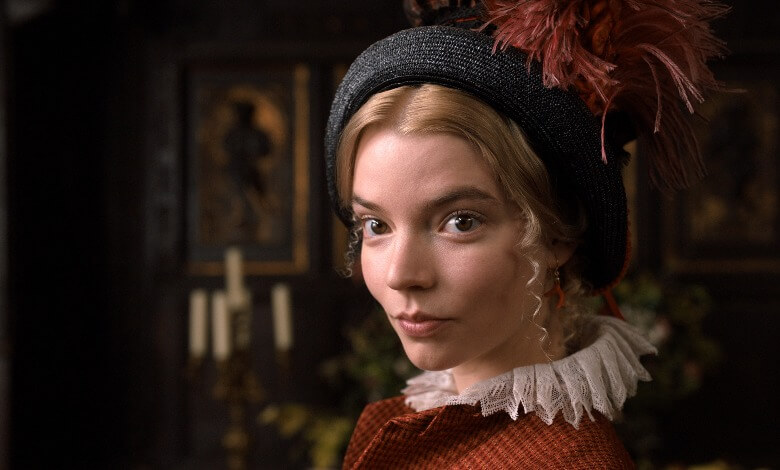
As sparkling as a glass of champagne, the newest production of Jane Austen’s “Emma” has charm written all over it.
The clothes. The hair. The dancing. The beautiful country walks down beautiful country lanes—all captured by beautiful camera angles.
Unfortunately, this film falls a bit short—and for one important reason. “Emma” can’t capture why Austen’s heroines are as beloved as her books are: they’re beautiful young women—but with equally beautiful hearts.
In this version, Emma isn’t the joyful meddler, but is written (and interpreted by Anya Taylor Joy) as a cool and stylish snob.
Akin to a tight corset, she doesn’t ever fully relax into the role, but as the film goes on and the seasons change, you end up liking her more and more.
Why?
The script allows some breathing room for her to showcase the character’s inherent sweetness.
FAST FACT: The 2020 film “Emma” marks the fourth big screen adaptation of Austen’s literary classic, assuming you include the creative spin on the story, 1995’s “Clueless.”
In general, there is an aloofness in the storytelling that keeps many of the characters at arm’s length. It results in certain plot lines losing their luster. If a viewer goes into the film without an intimate knowledge of Austen’s story—expect some confusion. Certain characters just aren’t properly introduced to the audience.
The film’s romance takes a more Beatrice and Benedick approach, and it really is quite fun to watch. Bill Nighy dazzles as Mr. Woodhouse—casually stealing every scene he’s in. The best performance, by far, comes from Miranda Hart’s portrayal as Mrs. Bates. Her acting is simply divine—especially during the infamous picnic scene.
Other notable performances are Josh O’Connor as the simpering Mr. Elton and Johnny Flynn with his knock-out role as Mr. Knightley.
Overall, the film interprets the book well. The greatest objection is the offbeat choice made during a scene at the climax of the film. No spoilers here, but it’s one Austen herself would cry foul over.
Some creative choices dazzled, though, bringing to life the source material’s humor. The duet scene comes to mind, as well as the choice to make Emma’s sister as much of a hypochondriac as her father is. You’ll also cheer many great moments acknowledging the servants, who silently man their stations in the midst of this classic romantic comedy of errors.
Like the drafts that Mr. Woodhouse so utterly loathes, the film starts off with a slightly unwelcome chill—but that’s nothing that should keep you away—not even the most ardent Austen fan.
Most interpretations of the author’s genius are well worth the seeing. Why? Because no matter how they’re adapted, they show that love isn’t merely a fanciful feeling, but a relationship with someone that is full of true devotion, and the utmost regard for the other’s well being.
Jennifer McDowell is a freelance writer who regularly interviews authors, artists and entrepreneurs. She enjoys coffee, swimming and all things Jane Austen! Please visit her web site Desk of J. Doogood.
